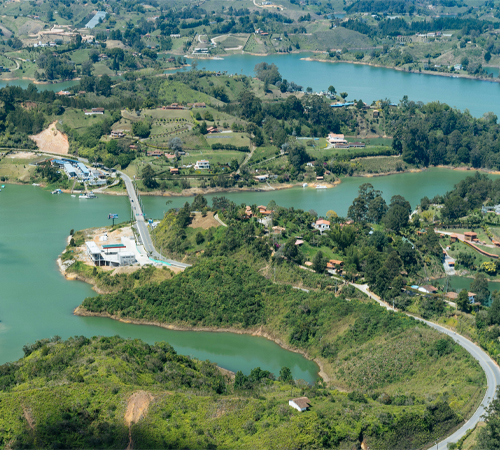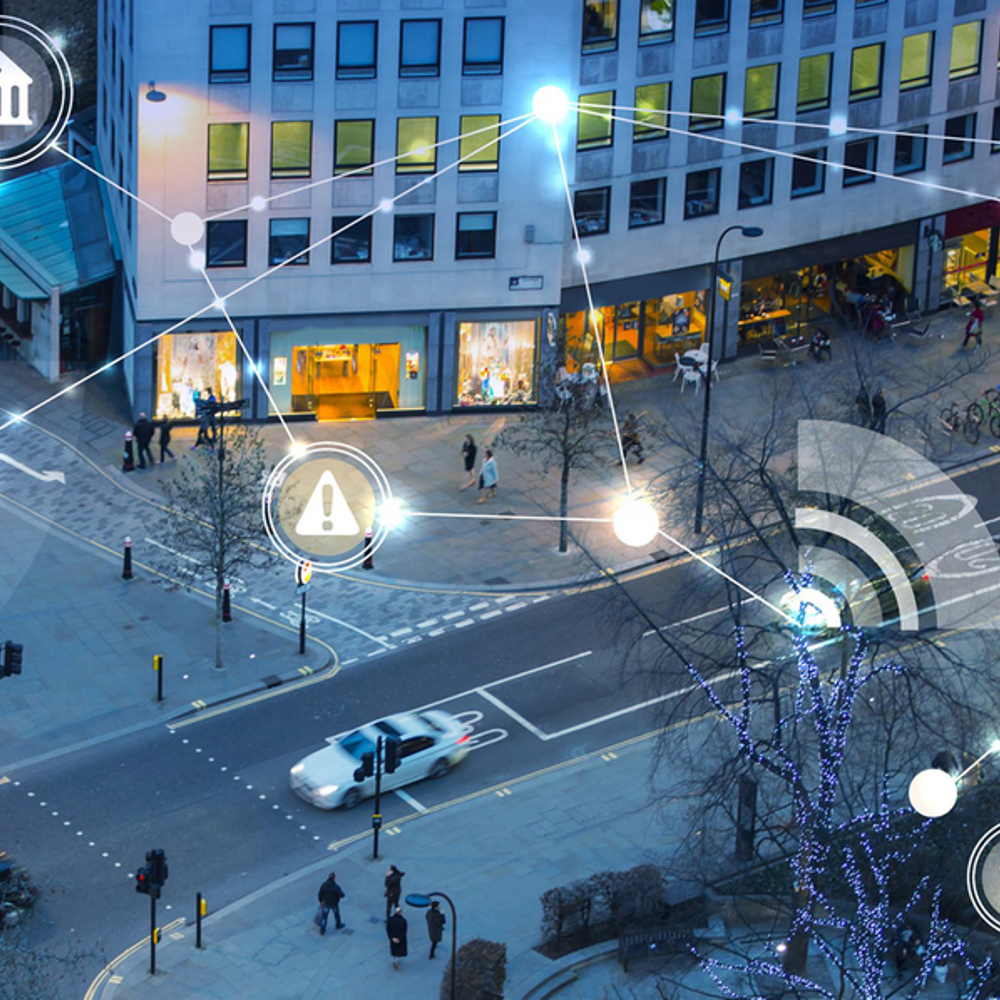
Artificially created lake for hydroelectric energy production in Guatapé Colombia.
Colombia and the just energy transition
Colombia’s primary energy comes from a mix of fossil and renewable sources. 23% is from renewables, which is higher than the global average of 14%. There is strong political will to mitigate climate change, though the main focus of emissions mitigation is agriculture, forestry, and land use, rather than energy. There is potential to transition to more renewable sources but there are major challenges. Several regions, for instance, are rich in hydropower resources and others in solar and wind, but transporting this energy to other areas requires further development of grid infrastructure, both within the country and with neighbouring countries. Additionally, renewables are highly variable as they depend on the weather. For example, droughts recently affected the hydropower generation as part of multi-annual phenomena such as El Niño and La Niña. Another major challenge is that Colombia’s exports are currently 50-65% dependent on fossil resource exports, so there is a need to transform the country’s economy.
This report summarises a workshop held by Colombian and UK partners on April 26, 2024, in Bogotá, Colombia. The workshop aimed to understand the barriers and opportunities to increasing access to sustainable energy in Colombia, focusing on including marginalised voices and adopting a systems approach to enhance outcomes. The event followed a three-day global Frontiers symposium on systems approaches in a just energy transition and was chaired by Professor Franklin Jaramillo from Universidad de Antioquia.
Systems approaches
A systems approach, which emphasises the interconnections within socio-technical systems, was highlighted as essential for addressing Colombia's energy challenges. Such an approach can facilitate better decision-making and innovation by aligning technology, processes, and policy to achieve more effective outcomes.
What is a systems approach?
A systems approach is a holistic and interdisciplinary way of understanding and solving complex problems. It views the world as a collection of interconnected and interdependent elements or people and emphasises the need for meaningful inclusion of unheard voices in creating lasting solutions to wicked problems.
Who was at the workshop?
The workshop gathered representatives from academia, government, industry, civil society, and financial institutions, who discussed their roles in the energy transition. Participants identified key stakeholders in Colombia’s energy system, including government, academia, industry, and civil society. However, significant gaps were noted, particularly the exclusion of consumers, Indigenous and Afro-Colombian communities, financial institutions, and miners and fossil fuel companies.
Key findings
Calls to action
- Develop a network which prioritises collaboration: Create a multidisciplinary energy network that fosters collaboration and knowledge exchange, directly influences policy, and drives towards a common goal. Include all sectors, especially industry and fossil fuel companies.
- Government must set direction: Government should establish a clear vision with achievable targets, supported by cross-sector leaders, recognising energy as both a development and environmental issue.
- Better connect academia with other stakeholders: Academia must strengthen ties with government and industry, promoting research that informs policy and supports innovation.
- Include and educate communities: Ensure consumer and community inclusion in energy projects. Government should enhance public education on energy efficiency.
- Innovate governance to support the transition: Develop new governance structures, such as regulatory sandboxes, to support agile and decentralised energy regulation.
- Map the system and financial resources: Conduct a comprehensive mapping of the Colombian energy system, including available financial resources.
- Develop pilot projects: Implement small-scale, high-impact pilot projects to test systems approaches, share results, and refine transition plans.
- Identify systems champions: Support ongoing projects that adopt systems approaches, led by individuals driving systemic change.
Contact us
For more information about this report, please contact Aisha Salim at [email protected]
Related resources

Systems approaches in practice
Explore how systems approaches can help to address and provide sustainable solutions to complex challenges.

Just energy transition in Colombia
Find out how Colombia is transitioning towards a just energy future.
